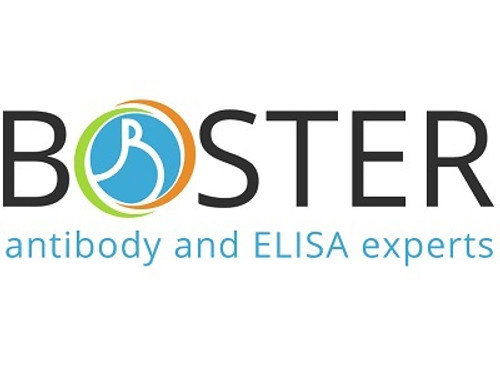Product Description
Recombinant Human RANK Receptor, soluble Protein [E. coli] | 100-117S/100-117 | ReliaTech
Species: Human
Host / biotech: E. coli
Comment: N/A
Label: N/A
Clone / Antibody feature: N/A
Subcategory: Cytokines & Growth Factors
Category: Recombinant Protein
Synonyms: tumor necrosis factor receptor superfamily, member 11a, NFKappa-B activator; FEO; OFE; ODFR; OSTS; PDB2; RANK; CD265; OPTB7; TRANCER; LOH18CR1
Isotype: N/A
Application: N/A
Detection Range: Determined by its ability to inhibit sRANKL induced NFkappaB in RAW264.7 cells in the absence of any cross-linking. The expected ED50 for this effect in the presence of 15ng/ml of recombinant sRANKL, is 30-50 ng/ml.
Species Reactivity/Cross reactivity: Mouse, Human
Antigen: N/A
Description: RANKL and RANK are members of the TNF superfamily of ligands and receptors that play an important role in the regulation of specific immunity and bone turnover. RANK (receptor) was originally identified as a dendritic-cell-membrane protein, which by interacting with RANKL augments the ability of dendritic cells to stimulate naïve T cell proliferation and to promote the survival of RANK + T cells. RANK is also expressed in a variety of tissues including skeletal muscle, thymus, liver, colon, small intestine and adrenal gland. The RANK/RANKL interaction is important in the regulation of osteoclastogenesis and in dendritic-cell-mediated T cell immune responses. Impairments in RANK signaling have been implicated in the induction of expansile osteolysis and Paget disease of bone (PDB2). Recombinant human sRANK receptor is a 19.3 kDa polypeptide containing the TNFR homologous cysteine rich portion of the extracellular domain of RANK receptor (175 amino acid residues).
Purity Confirmation: > 98% by SDS-PAGE & HPLC analyses
Endotoxin: < 0.1 ng/µg of protein (<1EU/µg)
Formulation: lyophilized
Storage Handling Stability: N/A
Reconstituation: N/A
Molecular Weight: 19.3 kDa
Lenght (aa): 175
Protein Sequence: MQIAPPCTSE KHYEHLGRCC NKCEPGKYMS SKCTTTSDSV CLPCGPDEYL DSWNEEDKCL LHKVCDTGKA LVAVVAGNST TPRRCACTAG YHWSQDCECC RRNTECAPGL GAQHPLQLNK DTVCKPCLAG YFSDAFSSTD KCRPWTNCTF LGKRVEHHGT EKSDAVCSSS LPARK
NCBI Gene ID: 8792
 Euro
Euro
 USD
USD
 British Pound
British Pound
 NULL
NULL

![Recombinant Human RANK Receptor, soluble Protein [E. coli] Recombinant Human RANK Receptor, soluble Protein [E. coli]](https://cdn11.bigcommerce.com/s-452hpg8iuh/images/stencil/1280x1280/products/671906/929749/logo__42078.1651665136__63653.1651684414.jpg?c=2)
![Recombinant Human RANK Receptor, soluble Protein [E. coli] Recombinant Human RANK Receptor, soluble Protein [E. coli]](https://cdn11.bigcommerce.com/s-452hpg8iuh/images/stencil/100x100/products/671906/929749/logo__42078.1651665136__63653.1651684414.jpg?c=2)
![Recombinant Human RANK Receptor, soluble Protein [E. coli] Recombinant Human RANK Receptor, soluble Protein [E. coli]](https://cdn11.bigcommerce.com/s-452hpg8iuh/images/stencil/500x659/products/671906/929749/logo__42078.1651665136__63653.1651684414.jpg?c=2)
![Recombinant Human TNF receptor type II, soluble Protein [E. coli] Recombinant Human TNF receptor type II, soluble Protein [E. coli]](https://cdn11.bigcommerce.com/s-452hpg8iuh/images/stencil/500x659/products/672112/929955/logo__42078.1651665136__27712.1651684480.jpg?c=2)
![Recombinant Human TNF receptor type I, soluble Protein [E. coli] Recombinant Human TNF receptor type I, soluble Protein [E. coli]](https://cdn11.bigcommerce.com/s-452hpg8iuh/images/stencil/500x659/products/672109/929952/logo__42078.1651665136__47230.1651684479.jpg?c=2)
![Recombinant Human RANKL, soluble Protein [E. coli] Recombinant Human RANKL, soluble Protein [E. coli]](https://cdn11.bigcommerce.com/s-452hpg8iuh/images/stencil/500x659/products/671911/929754/logo__42078.1651665136__51453.1651684415.jpg?c=2)
![Recombinant Human TRAIL/Apo2L, soluble Protein [E. coli] Recombinant Human TRAIL/Apo2L, soluble Protein [E. coli]](https://cdn11.bigcommerce.com/s-452hpg8iuh/images/stencil/500x659/products/672181/930024/logo__42078.1651665136__77733.1651684495.jpg?c=2)

![Recombinant Human CD40 Ligand/TRAP, soluble Protein [E. coli] Recombinant Human CD40 Ligand/TRAP, soluble Protein [E. coli]](https://cdn11.bigcommerce.com/s-452hpg8iuh/images/stencil/500x659/products/670684/928527/logo__42078.1651665136__34978.1651684061.jpg?c=2)
![Recombinant Human FAS receptor, soluble Protein [E. coli] Recombinant Human FAS receptor, soluble Protein [E. coli]](https://cdn11.bigcommerce.com/s-452hpg8iuh/images/stencil/500x659/products/670959/928802/logo__42078.1651665136__12980.1651684131.jpg?c=2)
![Recombinant Human BCMA Protein [E. coli] Recombinant Human BCMA Protein [E. coli]](https://cdn11.bigcommerce.com/s-452hpg8iuh/images/stencil/500x659/products/670499/928342/logo__42078.1651665136__04346.1651684015.jpg?c=2)
![Recombinant Human Lymphotactin Protein [E. coli] Recombinant Human Lymphotactin Protein [E. coli]](https://cdn11.bigcommerce.com/s-452hpg8iuh/images/stencil/500x659/products/671598/929441/logo__42078.1651665136__73964.1651684321.jpg?c=2)